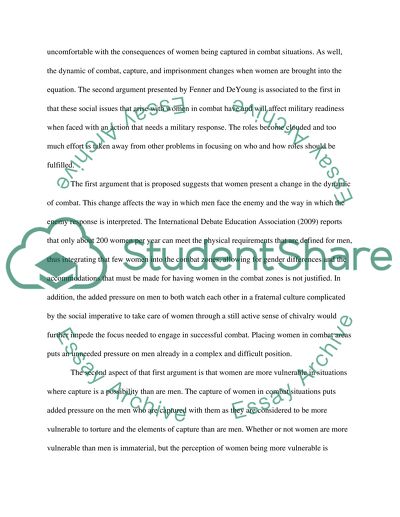Cite this document
(“Women in combat positions: Women should be respected as women, not Essay”, n.d.)
Retrieved from https://studentshare.org/philosophy/1434398-should-women-be-allowed-in-military-combat-why-and
Retrieved from https://studentshare.org/philosophy/1434398-should-women-be-allowed-in-military-combat-why-and
(Women in Combat Positions: Women Should Be Respected As Women, Not Essay)
https://studentshare.org/philosophy/1434398-should-women-be-allowed-in-military-combat-why-and.
https://studentshare.org/philosophy/1434398-should-women-be-allowed-in-military-combat-why-and.
“Women in Combat Positions: Women Should Be Respected As Women, Not Essay”, n.d. https://studentshare.org/philosophy/1434398-should-women-be-allowed-in-military-combat-why-and.


